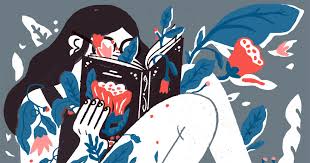
Wise Words #6: from Sun Tzu to Oliver Sacks
Week six of our #WiseWords series comes from London-based solution-focused therapist Simona Campli, who also offers Walking Therapy. Here she shares a varied and wide-ranging list of books she recommends to her clients, or finds specially powerful.
The Situation Is Hopeless, But Not Serious: The Pursuit of Unhappiness by Paul Watzlawick
I want to start with one of the most important authors in terms of my professional life. The master of critical intelligence, unconventional thinking and strategic creativity, Paul Watzlawick. I often recommend this book, which is friendly, witty and ironic while discussing such a deep subject and common aspiration of people: happiness.
In praise of Slow by Carl Honoré
I don’t think my work as a therapist is done if I don’t offer my clients a reflection on the key role of a slow attitude towards living. Deconstructing the basics for a life in a hurry, this book represents the real alternative: “seeking to do everything at the right speed”. Choosing to live a quality life, in a mindful and conscious way.
The Art of War by Sun Tzu
Chinese and oriental philosophies in general are, for me, the true excellence of communication. I often recommend this books to clients struggling with anger or having troubles with their relationships, at home as much as at work.
It’s a truly insightful book, a “Corrective Emotional Experience”, to use the term coined by psychoanalyst Franz Alexander, in writing.
Gratitude by Oliver Sacks
I recently discovered this book by one of my long time favourite authors. I’ve immediately added this to my recommended books for clients for its powerful representation of writing as a tool to re-visit and accept our past and deal with uncomfortable and hard emotions.
The Wander Society by Keri Smith
I’m adding this book for its poetic and creative praise of the art of wandering. In my work with clients I also practice walking therapy because I’ve always been a strong supporter of the importance of wandering.
It is by appreciating the world around us and paying attention to it, while also dealing with our inner thoughts, that we can find new meanings and narratives, are able to put things in perspective and also get inspiration, discover new scenarios – in and around ourselves.















